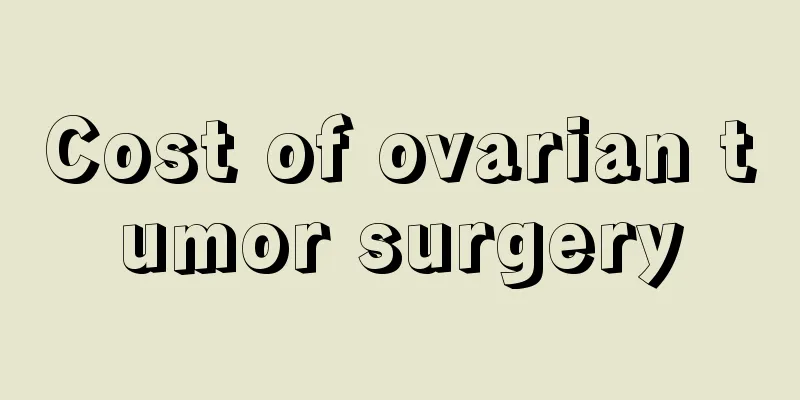Why do we need to do mid-term screening for Down syndrome

|
Mid-term screening for Down syndrome is a must-do examination, which is mainly done to prevent children from having congenital intellectual impairment or defects. It is usually done by pregnant women in the second trimester. Many pregnant women think that this examination costs money, so they don’t want to do it. They don’t understand the significance of doing it. So, why do they need to do the mid-term screening for Down syndrome? Let’s take a brief look at it! Check significance Down syndrome screening is aimed at specific people who do not have any corresponding disease indicators (such as all pregnant women). Through examination, high-risk groups with a higher possibility of Down syndrome are screened out for subsequent diagnostic examinations. There is currently no medical cure for Down syndrome, so the main approach to controlling the occurrence of Down syndrome is to prevent or reduce the birth of children with the disease. But one thing that needs to be made clear is that the purpose of screening is not to diagnose a certain disease, but to screen out people who are more likely to have a certain disease. necessity Any pregnant woman has the potential to conceive a baby with Down syndrome. "According to the results of the Ministry of Health's hospital-based birth defect monitoring from 2001 to 2006, 800,000 to 1.2 million children with birth defects are born in my country every year." Down syndrome screening is a general survey conducted on all pregnant women in my country to prevent the birth of children with congenital mental retardation. From a medical perspective, Down syndrome screening is very necessary and expectant mothers must pay enough attention to it. Down syndrome screening can reduce the birth rate of children with Down syndrome. Children with Down syndrome will suffer from severe multiple congenital malformations (special facial features, congenital heart disease, major organ dysfunction and limb abnormalities), accompanied by severe mental retardation and are basically unable to take care of themselves. Most children die before they reach adulthood. Therefore, in order to prevent the birth of children with congenital idiocy and to achieve early detection and early resolution, prenatal Down syndrome screening is very important. Data show that "through strict quality-controlled early pregnancy NT screening, the detection rate of 21-trisomy fetuses can exceed 80%, and the detection rate of other chromosomal abnormalities can exceed 70%. If combined with maternal serum examination, the detection rate can be further improved." Check the crowd According to the Maternal and Child Health Care Law, expectant mothers with the following conditions must undergo Down syndrome screening. 1. Pregnant women over 35 years old. 2. Pregnant women who receive large doses of chemical agents, radiation or severe viral infections in early pregnancy. . 3. Pregnant women with a history of giving birth to abnormal babies, repeated unexplained miscarriages, stillbirths, malformations, and neonatal deaths. 4. Antepartum hemorrhage, women who have experienced vaginal bleeding during pregnancy. 5. Pregnant women who have applied medicine in early pregnancy but do not know whether this medicine has any effect on the fetus. 6.Party B of the couple has a congenital metabolic disease, or is a pregnant woman who has given birth to a sick child. 7. If there is a clear family history of Down syndrome, Down syndrome screening should be done during the first pregnancy. 8. Pregnant women with polyhydramnios or suspected malformed fetuses in this pregnancy. 9. Pregnant women who have given birth to a fetus with chromosomal abnormalities are a high-risk group because their risk of giving birth to another child with chromosomal abnormalities is 10 times higher than that of normal pregnant women. 10. If one of the spouses has balanced chromosomal translocation, their offspring are at high risk of chromosomal abnormalities. 11. High-risk groups identified by prenatal screening. Through the above introduction, we can understand that doing mid-term screening for Down syndrome is very important for pregnant women themselves, so don’t be afraid to spend money, you must do it, so that you can understand the various conditions of yourself and the fetus in time, and can also avoid the occurrence of deformed babies. It is of great benefit to the fetus. |
<<: What is the best way to treat cervical hypertrophy?
Recommend
Potatoes can cure white hair and turn it into black hair
Potatoes, a common ingredient, are generally used...
What is the cure rate of tongue cancer
Cancer is a daunting disease. As we all know, can...
Is it better to lock the trekking pole internally or externally?
Mountaineering is currently a very popular outdoo...
How to treat severe Guillain-Barré syndrome
Guillain-Barré syndrome is an autoimmune disease ...
How to remove the strong smell of denim clothes_How to remove the smell of denim clothes
In life, many people like denim clothes very much...
The reason why you feel like vomiting when you are hungry
Hunger is a symptom we often encounter. Generally...
There is always phlegm between the nose and throat, there is always inflammation, and I often feel dizzy
There are many kinds of diseases in the human bod...
What are the symptoms of lung cancer? Teach you to easily identify complex lung cancer
The incidence of lung cancer in our daily life is...
What are the folk remedies for treating spleen deficiency, damp-heat and constipation?
Many people suffer from spleen deficiency, dampne...
Does wall covering contain formaldehyde
After buying a new house, people will choose to d...
Who are the most susceptible groups to nasopharyngeal cancer?
Who are the most susceptible groups to nasopharyn...
Can patients with cerebral infarction undergo surgery?
Whether a patient with cerebral infarction needs ...
Street dance teaching basic steps for boys
No matter which kind of dance you learn, the firs...
What types of hamartomas are there
What types of hamartomas are there? Speaking of h...
How much wolfberry should be used to soak in wine
Many people know how to use wolfberry to soak in ...









